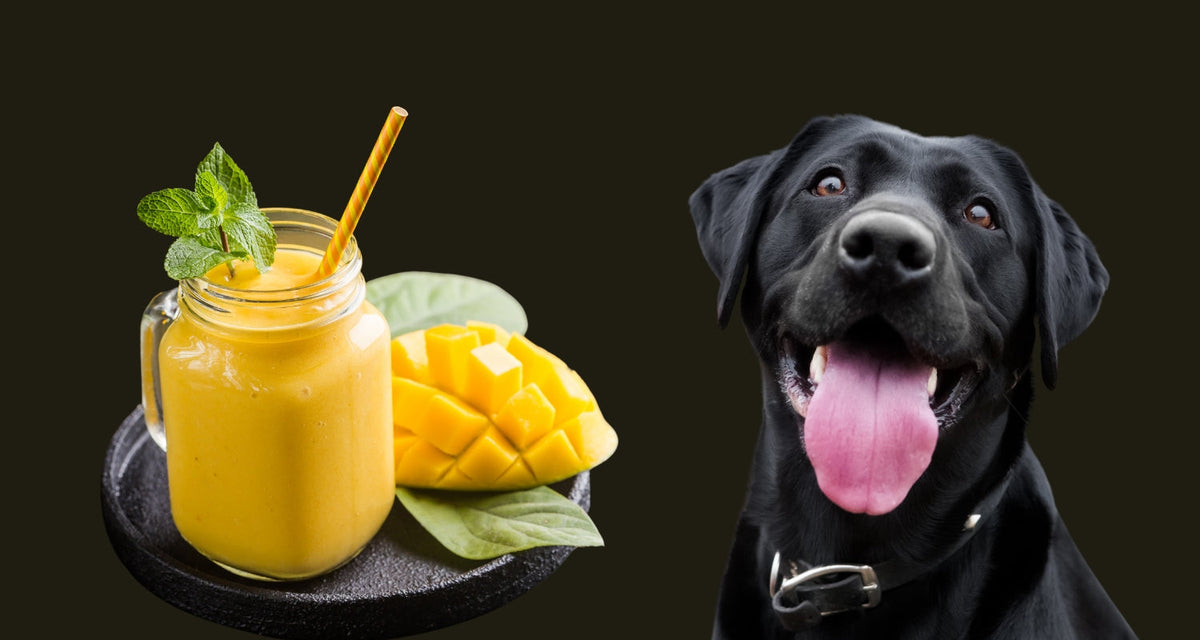
Can Dogs Eat Mango? The Ultimate Guide for Pet Owners
|
|
Time to read 4 min
|
|
Time to read 4 min
Mango is a soft-fleshed fruit of the Anacardiaceae family enjoyed by most humans.
There are over five hundred varieties of this fruit each with its own ripening schedule. However, you can enjoy store-bought dried or frozen mangoes even when out of season.
If you eat mangoes often, you've probably wondered, "Can a dog eat mango"? The answer is yes, dogs can eat mango, but as a dog owner, there is more detail you should know.
Table of Content
Mangoes are a nutritious fruit beneficial for dogs as they provide essential vitamins like B6, A, C, and E. They are a good source of fiber, alpha-carotene, and beta-carotene, as well as potassium.
Due to their high fiber content, mangoes aid digestion in dogs. They are also a good source of antioxidants which aids the immune system when fighting against diseases.
We answered the question about could dogs eat mango, but did you think to ask, "Should dogs eat mango?"
Mangoes are not toxic to dogs; in fact, they provide numerous health benefits to them. Still, there are precautions to take before feeding them to your pet. As mangoes are high in sugar, they can cause problems if consumed in large quantities, leading to issues like diabetes, digestive trouble, and tooth decay.
We will provide more insight in the following sections on the risks to watch for before incorporating mango into your dog's diet and how to go about feeding mangoes to dogs.
While dogs can and should eat mangoes as treats, there are certain risks if a dog eats them indiscriminately without supervision.
Mango seeds can be a choking hazard or cause a blockage if they get into a dog's digestive tract.
This study by Asharf, M., and Abu-Seisda shows that fresh mango seeds can become lodged and create a possibly fatal intestinal obstruction in dogs. Mango pits also contain trace amounts of cyanide, which is known to be toxic.
Therefore, you must remove them before feeding mangoes to your dog.
If your dog eats a mango pit, contact your vet immediately for advice on how to proceed, even if they don't show signs of choking or intestinal blockage.
Mango allergy in humans is caused by a compound called urishiol which is also found in poison oak or poison ivy.
However, mango allergy in dogs is extremely rare. Still, when introducing the fruit to your dog, monitor your pet for signs of gastrointestinal upset, such as vomiting or diarrhea, after feeding mango pieces to your dog..
Mangoes have a high carbohydrate (sugar) content, which can lead to obesity, diabetes, and other health issues if consumed excessively. Feeding your dog too many mangoes can also cause stomach upset, especially if they are not used to eating them, so it is best to start with small amounts.
You should completely avoid feeding your dog mangoes if they have diabetes, as it’s crucial to monitor their sugar intake.
Since there are some risks associated with feeding mangoes to dogs, we've provided some steps on how to feed your dog mango
In theory, it is ok if dogs eat dried mango, but you have to feed even smaller amounts as dried mangoes have a higher sugar concentration. Also ensure you get the dried mango from verified sources, as many brands of store bought dried mango contain added preservatives and ingredients that are not good for dogs.
When you feed mango to your dog, keep the portions small and offer them in moderation. Healthy treats like mangoes should only make up 10% of your dog’s diet, and the other 90% should come from a well-balanced dog food diet. The recommended portion sizes vary depending on your dog’s weight and breed size.
Dogs love many other types of fruit and most are safe for them to eat as part of a healthy diet. These include:
If your dog ate mango, you don't need to worry. This human food is much enjoyed both by pet parents and their dogs. However, like most fruits, they have a high sugar content, hence, we recommend feeding not more than 10% of their diet as fruits and other treats, while the rest of their food must come from a balanced diet of vet-approved dog food.
Remember to follow the appropriate steps when feeding mangoes to your dog to prevent choking hazards or an upset stomach. Always consult your veterinarian before feeding mangoes to your dog, especially if they have sensitive stomachs or diabetes.

